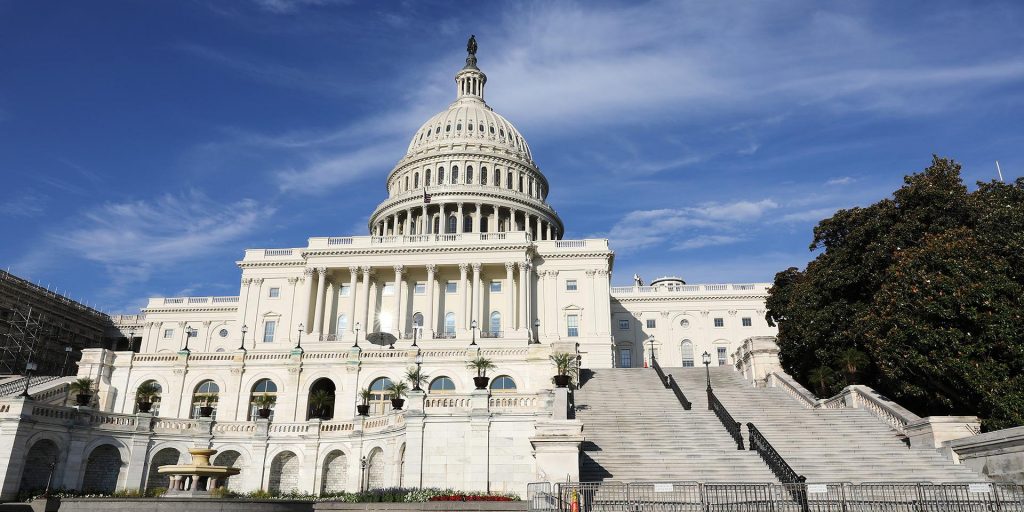Local leaders, experts, speak to effectiveness of American Rescue Plan at congressional hearing
While there’s a deep partisan chasm running through Washington, D.C., the nation’s local leaders and mayors are unified in their appreciation of the effectiveness of the American Rescue Plan Act (ARPA).
In a little more than a year’s time since it was signed into law, not one colleague has reached out to say “the American Rescue Plan was a bad deal, that’s Republicans and Democrats,” said Vince Williams, mayor of Union City, Ga. and president of the National League of Cities (NLC) during testimony at a congressional hearing Tuesday.
Williams was on a panel at the House Committee on the Budget discussing ARPA’s rollout along with Dr. Julia Coronado, founder and president of Macropolicy Perspectives; Sharon Parrott, president of the Center on Budget and Policy Priorities; and Stephen Moore, chair of the Save America Coalition, America First Policy Institute, and a distinguished fellow in economics at the Heritage Foundation. The board’s majority consensus is that ARPA was effective in preventing a serious downturn in a precarious economic environment.
“The definition of a recession versus an expansion” is a “feedback loop. … Spending creates jobs, more spending creates more jobs,” Coronado said, noting this is exactly what happened following ARPA’s implementation.
Throughout the hours-long hearing, titled “How the American Rescue Plan Saved Lives and the U.S. Economy,” partisan rancor frustrated an otherwise productive conversation about ARPA’s effectiveness, and best practices that can be taken from the bill and implemented permanently via future legislation.
From vaccination programs to supplies that helped schools reopen, direct payments and nutrition assistance, small business grants and increased unemployment benefits, the measure was a sweeping act that gave unprecedented and flexible spending power to local governments, according to a report submitted to the board on the occasion of the hearing.
“Over the last 50 years, it might be difficult to find another piece of legislation that was more impactful” in stemming poverty, said Parrott. About 40 million families received an expanded tax credit of $3,000 per month for each child over the age of 6, and $3,600 for children under 6, an estimated 6 million kids were pulled from poverty, reducing the nation’s child poverty rate by 30 percent.
A key result was the legislation’s “support for the labor market, and getting people back to work when they’re ready to do so,” said Coronado. “The last recovery (following the Great Recession), we didn’t do that, and people were out of the labor force for years—we didn’t see people reenter the workforce for seven years.”
Comparatively, unemployment rebounded quickly from a high of 14.7 percent to its current rate of 3.5 percent.
“It’s rare, in my lifetime,” Williams said, that the federal government gives so much money to so many regions, and for so many purposes. Reflecting a sentiment held by many mayors across the nation, he reaffirmed his neutrality and called for the conversation to return to its intended purpose: “I don’t operate Republican or Democrat as a mayor—I don’t have that luxury.”
The hearing derailed a number of times, diverting into irrelevant, generalized discussions about whether the former president is a better leader than the current one, and targeted political attacks. Discussions also frequently drifted into conversation about inflation, particularly in regards to increasingly high gas prices.
Some members of the board argued that ARPA exacerbated or outright caused the looming economic recession, concluding the legislation has done more harm than good. Conversely, the congressional report argues that ARPA, which injected $1.9 trillion into the economy, has allowed the nation to address “new global challenges from a position of economic strength.”
In responding to a question on the effectiveness of ARPA, Moore said there’s not much the current administration can do to make things any worse: “What recovery are you all talking about? There is no recovery.”
Others on the panel disagreed.
“The American Rescue Plan saved human lives. I am not going to equate the price of gas with human life,” Williams said. “The economy in my city would have, certainly, continued to do as many communities have, and that is, collapse.”
Williams highlighted how the State and Local Fiscal Recovery Funds program included in ARPA gave cities, towns and villages the ability to be part of a national economic recovery from the bottom-up, starting with the hardest-hit residents, according to a statement from the NLC.
“For local governments, the public health crisis was inseparable from the economic crisis. It laid bare long-standing health disparities that underlie why losses have happened in cities in such uneven ways. Households in lower income communities are at a greater risk of bad health outcomes, which worsen the effects of COVID-19. This is evident across metro Atlanta, where lifespans vary by as much as two decades based on your neighborhood,” Williams said.
Looking ahead, Parrott encouraged the board to take action to make some of the temporary measures included in the bill permanent.
While effective in the short term in staving off a much worse situation, “Temporary measures can’t solve permanent problems,” Parrott said. “We tested some things that worked, which could push back in a more systemic way,” such as the Child Tax Credit. “The needs were invested in three areas: our kids, our workers and our healthcare.”
Coronado noted that, while everything did work itself out eventually, the sudden influx of cash and expanded programs exposed “the creakiness of the infrastructure,” she said, noting “the IRS is stretched to the breaking point.”
As the nation pivots to the next challenge, Williams stressed the importance of looking beyond partisan politics, and working together to help those most vulnerable.
“I am noticing and have noticed, not just in Georgia or in my city, that American officials at all levels have begun to work together for (constituents),” Williams said. “It is imperative that every person that has been sent to Washington, that they do the right thing when it comes to saving lives.”




















